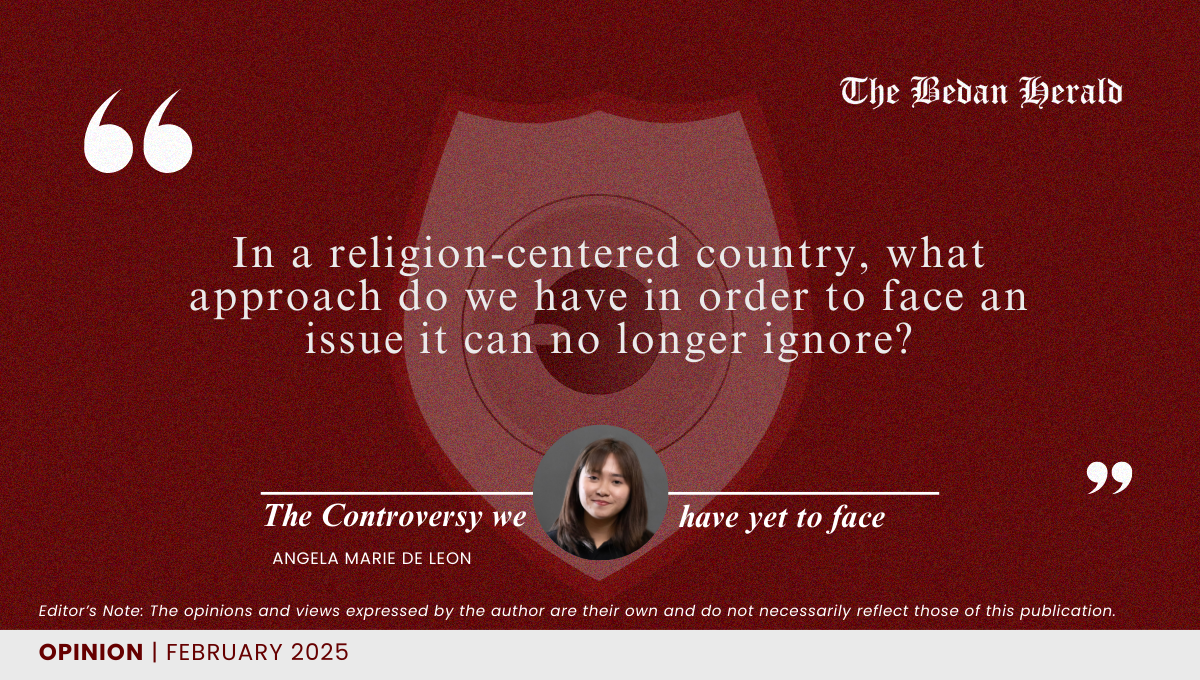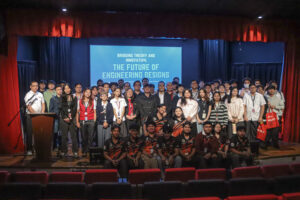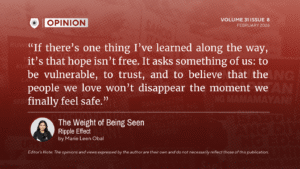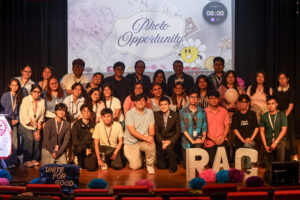By Angela Marie De Leon | February 14, 2025
The controversy we have yet to face
THE Philippines is known to be a country centered on Christianity. Majority of Filipinos are Roman Catholic. Some say that to be considered a religious country, it has to have a culture, societal norms, and statutes almost dependent on the nation’s faith. Undeniably, this is very evident in our country, where nearly every tradition, cultural practice, and even statute is intertwined with religion.
Amid the raging cases of teenage pregnancy, Sen. Risa Hontiveros proposed Senate Bill No. 1979 entitled “Prevention of Adolescent Pregnancy Act”, which would make “Comprehensive Sexuality Education,” or the CSE, a subject that is mandatory in public and private schools. This bill aims to prevent teenage pregnancies and the sexual assault of minors. However, not even weeks have passed, the bill has already faced criticism from public officials and the general public.
Last Jan. 20, President Ferdinand Marcos Jr. firmly held that he would veto the bill once it reached his hand. Blaming the “woke” mentality, President Marcos. Jr said, “You will teach four-year-olds how to masturbate. That every child has the right to try different sexualities. This is ridiculous.”
On the other hand, seven senators who initially supported the bill have withdrawn their endorsement. In a letter addressed to Senate President Francis “Chiz” Escudero, they expressed that, given the recent feedback and concerns surrounding the bill, further discussions are needed before it can progress.
Lastly, a social media page named Project Dalisay posted a video where representatives from different religious affiliations expressed their concerns about the bill. They emphasized that if the CSE is to be guided by international standards, it would result in misalignment with Filipino culture and values.
With clashes from different sectors, the issue of rising teenage pregnancies remains unsolved. Truly, a country that took almost a decade to pass the reproductive health law in 2012 will likely be even more critical in mandating the Comprehensive Sexuality Education subject. Indeed, such a sensitive topic being taught by a teacher may seem peculiar, leading many to argue that it is better to leave such a duty to parents. However, the lingering question remains: is this enough to prevent teenage pregnancy?
In our country, we live by the saying from Dr. Jose Rizal: “Ang Kabataan ang Pag-asa ng bayan.” But what should we do if the generation we expect to be our hope is instead engaging in practices meant only for adults, such as cleaning milk bottles and changing diapers, rather than sharpening their pencils and writing their thoughts?
Still, this challenge is yet to be solved. If mandatory sexuality education is not the solution, then what other options do we have?




